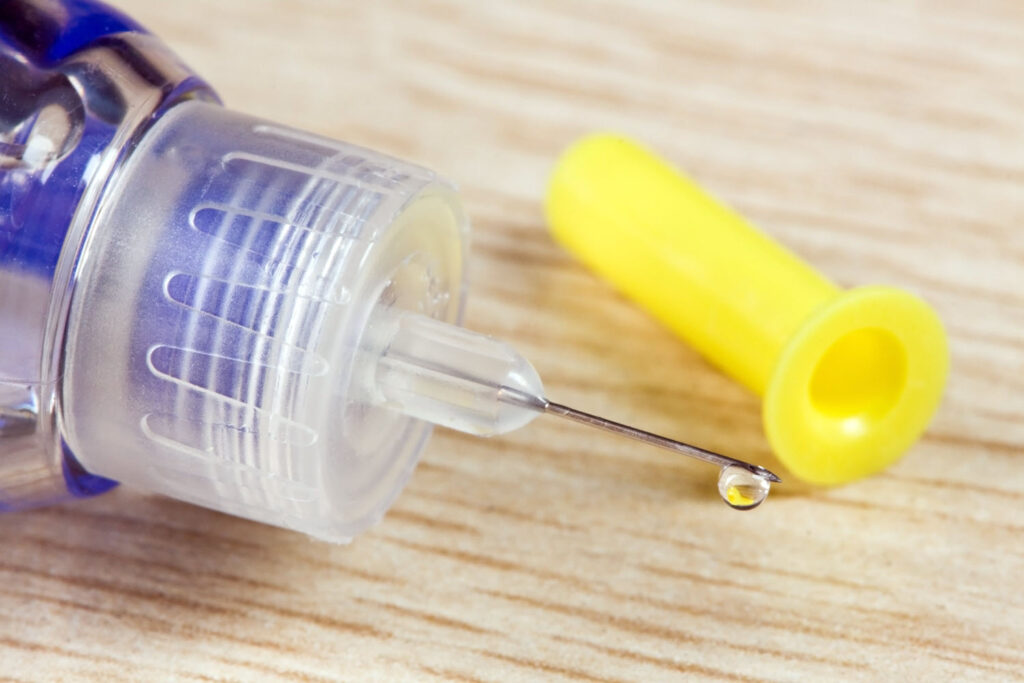Published by Dr. Brandon Richland, MD

Mounjaro, known by its generic name tirzepatide, is a relatively new player in the weight loss arena. It was originally developed for the treatment of type 2 diabetes; however, its effectiveness for weight loss has gained significant attention. The duration of Mounjaro treatment for weight loss purposes is an area of interest for both healthcare professionals and those looking to manage their weight. While the optimal length of therapy may vary based on individual patient needs and clinical guidelines, ongoing research continues to explore the long-term effects and sustainability of weight loss with Mounjaro.
While Mounjaro may be an effective tool for weight loss, its use must be considered within the broader context of an individual’s overall health and lifestyle. Weight management typically involves a multifaceted approach, including diet, exercise, and behavioral changes alongside medication.
Patients considering or currently taking Mounjaro for weight loss should do so under the guidance of a healthcare provider to ensure safety, address potential side effects, and navigate dosage adjustments over time. Additionally, factors such as insurance coverage and cost may also affect the accessibility and duration of treatment with Mounjaro for eligible patients.
Key Takeaways of How Long Can You Take Mounjaro for Weight Loss
- Mounjaro’s weight loss effects are noted, but the length of treatment varies.
- Lifestyle changes alongside Mounjaro are essential for effective weight management.
- Healthcare guidance is crucial for safely administering Mounjaro over time.
Understanding Mounjaro
Mounjaro, known by its generic name tirzepatide, is making waves in the medical community due to its dual-action formula. This innovative medication not only aids in glycemic control for individuals with type 2 diabetes but also shows promise in promoting weight loss, offering a new potential option for those managing obesity.

Active Ingredients and Drug Class
Mounjaro’s active ingredient is tirzepatide, which belongs to the drug class of glucagon-like peptide-1 (GLP-1) receptor agonists. Unlike other drugs in its class, it also targets the glucose-dependent insulinotropic polypeptide (GIP) receptor, making it a unique dual agonist in its therapeutic effects on the body.
How Mounjaro Works in the Body
Tirzepatide works by mimicking the effects of the natural hormones GLP-1 and GIP. These hormones play a role in regulating glucose levels by enhancing insulin production from the pancreas in response to food intake. Mounjaro is administered through subcutaneous injection, typically once a week.
FDA Approval and Indications
Mounjaro has been FDA-approved for managing type 2 diabetes. Currently, its use for weight loss is not FDA-approved but is under fast-track consideration due to promising trial results indicating significant weight reduction in individuals with obesity.
Benefits of Mounjaro for Weight Loss
Clinical studies have observed that individuals using Mounjaro experienced an average weight loss of approximately 15% to 20% of their body mass index (BMI). It appears to reduce appetite and influence weight management, offering a potential treatment for those struggling with obesity.
Dosage and Administration
Managing weight with Mounjaro involves carefully following prescribed dosages and understanding the proper administration techniques.
Starting Dosage and Titration
The starting dosage of Mounjaro for weight management purposes begins at 2.5 mg, administered once weekly. It’s essential for healthcare providers to consider a gradual increase in dosage to mitigate side effects and accommodate the patient’s response to the medication. Titration steps should proceed as follows, increasing only after the patient has tolerated the current dose:
- Week 1-4: 2.5 mg
- Week 5-8: Increase to 5 mg
- Subsequent titrations: Incremental increases may continue in 2.5 mg steps to a maximum dose as determined by the healthcare provider.
Injection Techniques
Mounjaro is delivered through subcutaneous injection using an injection pen. Patients may self-administer the injection into their abdomen, thigh, or upper arm. The site of injection should be rotated with each dose to avoid potential skin reactions. Proper technique includes:
- Pinching the injection site softly.
- Inserting the needle fully at a 90-degree angle.
- Pushing the button on the pen until the dose is fully administered.
Storage and Handling of Mounjaro
Storing Mounjaro correctly is vital to maintain its efficacy. The medication should be refrigerated at a temperature between 2 to 8 degrees Celsius (36 to 46 degrees Fahrenheit) until it’s ready for use. Once the patient has started using the injection pen, it can be kept at room temperature, not exceeding 30 degrees Celsius (86 degrees Fahrenheit), for a limited period as per the manufacturer’s guidelines, and should be discarded after the use or expiry date, whichever comes first.
Long-Term Treatment Considerations
When considering long-term treatment, patients and providers should discuss the expected duration of therapy and monitor for potential side effects. While significant weight loss may occur, the safety and efficacy of Mounjaro must be evaluated on an individual basis over the long-term use. Continuous assessment of weight loss goals and metabolic health variables play a crucial role in determining the course of treatment with Mounjaro.
Lifestyle Considerations
When considering the use of Mounjaro for weight loss, individuals must understand that it is not just the medication that contributes to weight loss, but also a commitment to a healthy lifestyle. Integrating a balanced diet and regular exercise into one’s routine is crucial, as well as being aware of how to manage potential side effects through lifestyle choices.
Importance of Diet and Exercise
Incorporating dietary changes and regular physical activity can significantly bolster the weight loss effects of Mounjaro. It’s important for users to know that changes in nutrition and exercise habits are essential for long-term success.
Aiming for a diet rich in vegetables, lean proteins, whole grains, and fruits can help maximize the benefits of Mounjaro.
Experts often recommend a mix of aerobic and resistance training exercises to support weight management and overall health.
Managing Side Effects Through Lifestyle
Mounjaro, like any medication, can cause side effects such as nausea, vomiting, and diarrhea. Lifestyle adjustments can help in managing these:
- Hydration: Drinking plenty of fluids can help mitigate nausea and prevent dehydration in case of vomiting or diarrhea.
- Meal Timing and Composition: Eating smaller, more frequent meals that are bland and low in fat may reduce gastrointestinal side effects.

Side Effects and Precautions
When considering the use of Mounjaro for weight loss, individuals should be aware of the potential side effects and health risks.
Common Adverse Reactions
The use of Mounjaro can lead to a range of common side effects, which may include:
- Nausea and vomiting: A frequently reported reaction, often diminishing over time.
- Diarrhea and constipation: Digestive issues that some individuals may experience.
- Decreased appetite: May contribute to the weight loss effect but could also affect nutritional intake.
- Abdominal pain: Discomfort in the stomach area is possible.
These side effects can be bothersome but are not typically dangerous. Those who experience these symptoms should contact their healthcare provider, as they may be able to suggest ways to alleviate discomfort.
Serious Health Risks
While less common, Mounjaro is associated with several serious health risks that require immediate medical attention:
- Pancreatitis: Significant abdominal pain that does not go away may be a sign of pancreatitis, which requires prompt medical evaluation.
- Medullary Thyroid Carcinoma (MTC) and Multiple Endocrine Neoplasia Syndrome Type 2 (MEN 2): Mounjaro has a warning for the risk of thyroid C-cell tumors, so it should not be used by individuals with a personal or family history of MTC or those who have MEN 2.
- Allergic reactions: Symptoms could include itching, rash, difficulty breathing, or swelling of the face, lips, tongue, or throat.
Individuals considering Mounjaro for weight loss should discuss these risks with their healthcare provider. This is especially important for those with a history of thyroid cancer or pancreatic issues. Monitoring for symptoms and regular consultations with healthcare professionals are crucial to use Mounjaro safely.
Insurance and Cost Considerations
Mounjaro (tirzepatide) can be an effective treatment option for weight loss in certain individuals, but insurance coverage and cost are important factors to consider before starting the medication. Patients should closely evaluate their insurance benefits and explore available assistance programs to manage the financial aspects of treatment with Mounjaro.
Insurance Coverage for Mounjaro
Although Mounjaro is approved for managing type 2 diabetes, insurance may not cover it for off-label use such as weight loss. Currently, insurance plans vary in their coverage for Mounjaro, and it’s essential for patients to check with their insurance provider to understand their specific benefits. For those with Medicare, coverage for weight loss medications can be limited, and it’s advisable to discuss this with a Medicare representative.
Out-of-Pocket Costs and Assistance Programs
The price of Mounjaro without insurance can be a substantial out-of-pocket expense. However, patients might be able to reduce their costs with an Optum Perks coupon. In addition, assistance programs through the manufacturer may offer further help to patients who qualify.
These programs are designed to assist with the cost, either by providing Mounjaro at a lower price or, in some cases, at no cost to the patient. It’s recommended for patients to directly contact the manufacturer or visit their website to inquire about eligibility for these assistance programs.
Clinical Evidence and Studies
Recent studies on Mounjaro offer substantial data on its effectiveness for weight loss, detailing significant outcomes from its clinical trials and comparisons with other treatments.
Clinical Trial Outcomes
Clinical trials have been instrumental in revealing the impact of Mounjaro on weight loss. For example, a 72-week study involving over 2,500 adults with obesity reported that participants taking 5 milligrams of Mounjaro lost 15% of their body weight on average.
These findings are essential as they shed light on the long-term usage of the medication. In another instance, the reduction of A1c, a marker for blood sugar control, was also observed alongside weight loss, suggesting dual benefits for users, particularly those at risk for type 2 diabetes.
Comparative Effectiveness Studies
Comparing Mounjaro with other weight-management drugs has also been telling. In trials, people using Mounjaro experienced a weight loss of 26.6% over 84 weeks, which stands out when juxtaposed with results from those taking Ozempic, a different medication for weight reduction.
These studies underscore the comparative effectiveness of Mounjaro, particularly in how it may offer a more pronounced weight-loss effect over a similar time frame compared to alternatives. In placebo controlled studies, these drugs provided a significant contrast in outcomes, exemplifying the active role that Mounjaro plays in weight management.
Frequently Asked Questions About How Long Can You Take Mounjaro for Weight Loss
1. What Is The Recommended Duration Of Treatment With Mounjaro For Weight Loss?
For individuals using Mounjaro for weight loss, a study suggests a duration of 72 weeks, with participants observing an average of 15% body weight loss.
2. How Soon Might I Observe Weight Loss After Starting Mounjaro?
Patients may start noticing weight loss within a few weeks after initiating treatment with Mounjaro, but individual responses can vary.
5. Can Mounjaro Be Used As A Weight Loss Medication In Individuals Without Diabetes?
While not approved for non-diabetics, some doctors may prescribe Mounjaro off-label for weight loss in individuals without diabetes, emphasizing the importance of medical supervision.

Conclusion and Summary of How Long Can You Take Mounjaro for Weight Loss? Safe Duration
As we navigate the complexities of weight loss and obesity treatment, Mounjaro stands out as a significant advancement, offering hope to many who have struggled with traditional methods. Its FDA fast track designation underscores the urgent need for effective and safe weight loss treatments, especially for those suffering from weight related comorbidities and other medical conditions. By effectively helping individuals to lose weight and manage blood sugar levels, Mounjaro represents a dual-front approach against the pervasive challenges of obesity and diabetes.
Patients considering Mounjaro must engage in thorough discussions with licensed healthcare professionals to understand all aspects of the medication, including how to inject Mounjaro, comprehend the drug information contained, and anticipate the most common side effects. As with any medication, understanding the balance between the benefits and risks, especially considering the most serious warning signals, is crucial.
Furthermore, while the Mounjaro cost and insurance coverage aspects, such as whether policies cover Mounjaro, are important practical considerations, the ultimate goal is to enhance the quality of life and health outcomes for individuals.
With continued research, patient education, and a holistic approach to health and wellness, Mounjaro could redefine weight management strategies, offering a brighter, healthier future for individuals struggling with obesity and its myriad complications.
Please note that this article is intended for informational purposes only and should not be construed as medical advice. Before making any changes to your treatments, please consult with your healthcare provider to discuss the appropriateness and safety of such changes.
Ready For Your First-Class Cosmetic Experience in Orange County (OC) California (CA)?
Are you located in one of these Orange County (OC) / Southern California cities?
Aliso Viejo, Anaheim, Brea, Buena Park, Costa Mesa, Coto de Caza, Cypress, Dana Point, Fountain Valley, Fullerton, Garden Grove, Huntington Beach, Irvine, La Habra, La Palma, Laguna Beach, Laguna Hills, Laguna Niguel, Laguna Woods, Ladera Ranch, Lake Forest, Los Alamitos, Mission Viejo, Newport Beach, Orange, Placentia, Rancho Santa Margarita, San Clemente, San Juan Capistrano, Santa Ana, Seal Beach, Stanton, Tustin, Villa Park, Westminster, or Yorba Linda?
Plastic Surgeon Dr. Brandon Richland, MD and our Cosmetic Aesthetics Team are ready to help you look and feel your absolute best.
Elevate your confidence and self esteem levels to unfathomable new heights!
Schedule your in-person consultation in our modern and luxurious offices in either Fountain Valley, CA (Main HQ) or our Newport Beach, CA office.
Do you live outside of Southern California or short on time? For your convenience, Virtual Consultations are also available.
Our warm and engaging Team of carefully selected Aesthetics Professionals will make you feel calm, cool, collected, and right at home throughout your entire consultation and surgery process.
Schedule Your Aesthetics Consultation here, or call us directly at 949-867-4496 today.
About the Author

Dr. Brandon Richland, MD is a respected Board Certified Licensed Plastic Surgeon in Orange County / Southern California specializing in cosmetic and reconstructive surgeries.
Driven by his passion for medicine, Dr. Richland obtained his Doctor of Medicine (M.D.) degree from the prestigious program at Saint Louis University (SLU) School of Medicine in 2013. His exceptional skills were recognized when he received the McGraw Hill / Lange Medical Student Academic Achievement Award, and graduated top of his class with Honors. For his undergraduate degree, he attended University of California, Los Angeles (UCLA) and graduated with Honors in 2009.
To further enhance his surgical expertise, Dr. Richland completed his Residency in Plastic Surgery at the University of California, Irvine (UCI) from 2013 to 2019 earning the Academic Achievement Award twice during this period. A total of 14 years in dedicated schooling and medical residency.
Dr. Richland is actively involved with healthcare and medical societies, as a Diplomate of the American Board of Plastic Surgery, a member of the American Society of Plastic Surgeons, American Society of Aesthetic Plastic Surgeons, and the California Society of Plastic Surgeons.
Contact Dr. Richland today by visiting RichlandMD.com, scheduling a cosmetic consultation, or by calling 949-867-4496 directly.
Cover Image Credit: Nazariykarkhut / 123RF.com (Licensed). Photo Illustration by: Dr. Brandon Richland, MD.










